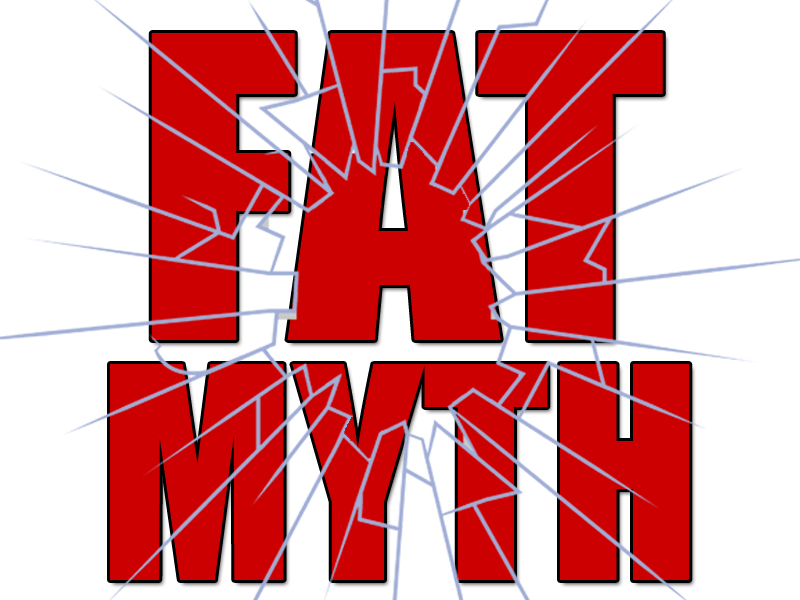Get Easy Health Digest™ in your inbox and don’t miss a thing when you subscribe today. Plus, get the free bonus report, Mother Nature’s Tips, Tricks and Remedies for Cholesterol, Blood Pressure & Blood Sugar as my way of saying welcome to the community!
The big FAT myth — busted!

There are many nutrition myths that are deeply embedded in society. So much so that they become “norms” — things that most people believe to be true and don’t really question.
One such nutrition myth surrounds fat.
For instance, you might automatically think the following things:
- Eating fat, especially saturated fat, causes high cholesterol and heart disease.
- Eating fat makes you fat.
- Eating a low fat diet is healthier and will help prevent heart disease.
These are “norms” — we’ve all grown up believing these as truths and they are common messages spread through large health organizations worldwide.
But, are these “norms” really the truth?
As it turns out, there is a lot more to this big FAT story…
Since it is quite a big story, I want to present a brief review of the evidence and the real truth about fat in this article, so there’s no doubt in your mind…
And in my follow-up post I’ll hope you’ll read tomorrow, I’ll help you understand the different types of fats and the best and worst ones to eat.
The real truth about fat
Saturated fat does not increase risk of heart disease.
A review of clinical trials, published in the Nutrition Journal (2017), evaluated whether replacing saturated fat with polyunsaturated fat reduced coronary heart disease. According to the reviewers, the available evidence from “adequately controlled” randomized trials suggest that these dietary changes are unlikely to reduce coronary heart disease events or effect death rates from coronary heart disease. They also make a point of noting that earlier analysis was based on inaccurate conclusions from “inadequately controlled trials.”
Another review of 41 observational studies, published in the British Medical Journal (2015), made multiple comparisons from a collective of 90,501 to 339,090 participants. The reviewers concluded that saturated fat was not associated with higher risk of all-cause death, death from heart disease, higher risk of stroke, total heart disease risk, or risk of type 2 diabetes.
Consuming a high fat diet improves cholesterol.
A randomized trial, published in the European Journal of Clinical Nutrition (2017), gave participants a saturated fat or polyunsaturated fat-enriched diet (40-50% fat) with the addition of omega-3 supplements. Both diets showed a reduction in cholesterol, not an increase as one might expect from consuming high amounts of fat. More importantly, participants saw a change in VLDL and LDL particle size, becoming larger and more buoyant. Even though LDL is commonly thought of as “bad” cholesterol, it’s the small dense particles that cause all the problems.
Similar results showing positive changes in cholesterol have been shown in several other studies.
Fat does not make you fat.
In a one year trial, those consuming a high fat, low carb diet lost 11.6 pounds and had a 1.3 percent decreased body fat percentage, compared to those following a low fat, high carb diet who lost only 3.9 pounds and had a 0.3 percent body fat decrease.
Another six month trial in obese participants showed a 10.3 pound weight loss in the high fat group compared to a 4.8 pound loss in the low fat group.
Several other studies have shown similar results. Researchers suggest fat intake improves satiety (feeling of fullness and satisfaction), and therefore decreases overall caloric intake. Plus it has several metabolic advantages.
This research is just the tip of the iceberg. But as you can see, much of the recent science shows the opposite of those deeply embedded societal “norms” we’ve all been led to believe.
Fat is an essential nutrient that our body needs, even saturated fat. And in part two of this fat series, we’ll cover the healthiest fats to eat.












